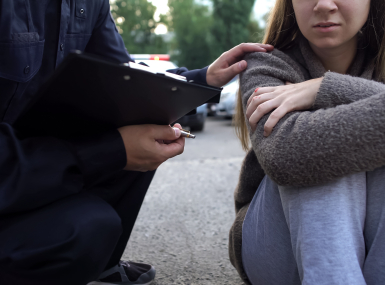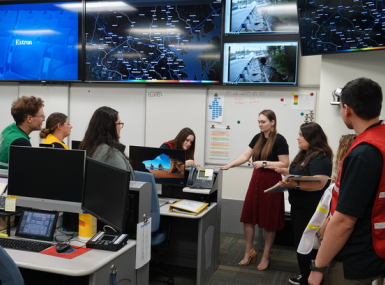Bipartisan bills introduced to support counties in the disaster recovery process
Author

Brett Mattson

Julia Cortina
Upcoming Events
Related News

Key Takeaways
On May 18, Senators Brian Schatz (D-Hawaii), Susan Collins (R-Maine), Patty Murray (D-Wash.) and Cindy Hyde-Smith (R-Miss.) reintroduced the Reforming Disaster Recovery Act (S.1686) to permanently authorize the U.S. Department of Housing and Urban Development’s (HUD) Community Development Block Grant-Disaster Recovery (CDBG-DR) program.
HUD’s CDBG-DR program provides grants to state and local governments to rebuild affordable housing and other infrastructure (especially in low-income areas) after a presidentially declared disaster. Insurance and short-term federal assistance are typically unable to cover the costs of these types of projects, leaving state and local governments to struggle to repair infrastructure and facilitate economic development in disaster-impacted communities.
While the CDBG-DR program can fill this gap in assistance, the program’s funds can only be made available through special congressional approval. Due to the program’s lack of permanent authorization, HUD must write new regulations to guide state and local grantees each time the program is appropriated funds. This ad hoc system significantly delays funding, resulting in lengthened recovery timelines, stagnated economies and an increase in homelessness and migration. Permanently authorizing the CDBG-DR program would reduce unnecessary administrative burdens and allow counties to access funding more quickly after a disaster occurs.
NACo, in conjunction with the National Low Income Housing Coalition and Enterprise Community Partners, sent a letter of support to Congressional leadership with over 40 signatories in support of the bill last Congress and are working with our partners on a similar letter for the reintroduction of the bill this Congress.
Additionally, on April 18, Senator Marco Rubio (R-Fla.) and Representatives Neal Dunn (R-Fla.), Garret Graves (R-La.) and Darren Soto (D-Fla.) reintroduced the FEMA Loan Interest Payment Relief Act (H.R.2672/S.1180). As the frequency, severity and cost of disasters continues to increase, even the most well-resourced counties do not have the funds needed to adequately respond to a disaster. Therefore, many counties are often forced to take out large loans to cover the immediate costs of recovery in order to return our communities and residents’ lives back to normal as quickly as possible. This legislation would require FEMA to reimburse local governments and electric cooperatives for interest incurred on these disaster-related loans and save local taxpayers money in the long term, as interest costs on these loans are often passed on to our residents.
Counties were strong supporters of the bill when it was introduced in the 117th Congress and sent a letter of support endorsing the bill again.
Counties are critical players in rebuilding local economies, infrastructure and providing supportive services to our nation’s residents after a disaster occurs. Counties applaud the reintroduction of these bipartisan bills and will work with our congressional champions to see these critical pieces of legislation over the finish line.
Related News

House passes legislation to increase the Crime Victims Fund
On January 12, the House passed the Crime Victims Fund Stabilization Act (H.R. 909) by a voice vote.

Cross-training helps county 911 scale up for big emergencies
With training, Howard County, Md. staff help filter and respond to non-emergency requests for information and assistance during period of heavy 911 call volume.
